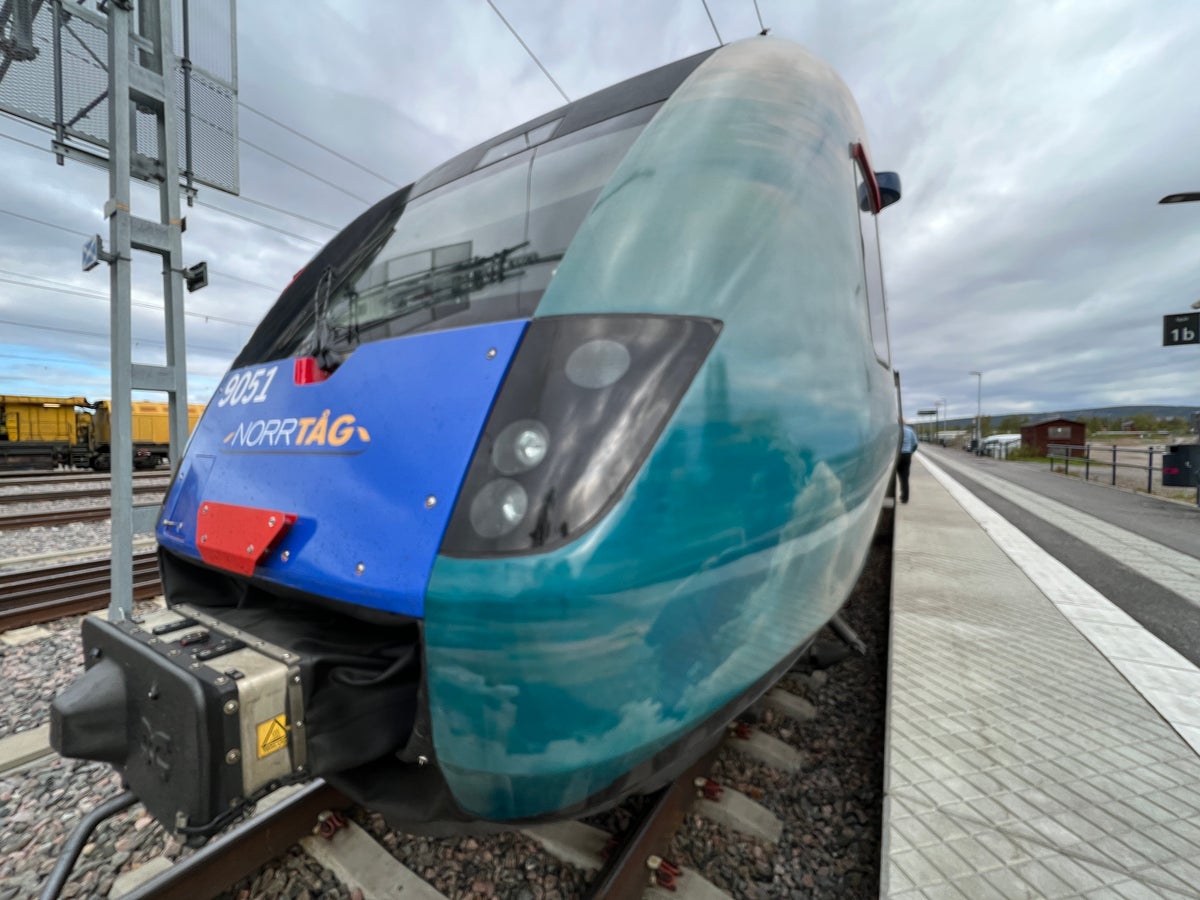
Simon Calder, also known as The Man Who Pays His Way, has been writing about travel for The Independent since 1994. In his weekly opinion column, he explores a key travel issue – and what it means for you.
Birch trees in their thousands (millions, perhaps) prove mesmeric as they race past the train window. Sometimes they are jostled out of the view by stands of pines. Occasionally the view opens up to reveal a lake. The monochrome surface, as sullen as lead, reflects a sky blanketed by cloud. Colour is provided by the cottages and farmhouses that straggle beside the railway line, uniformly painted in “falu red” – the rust-toned paint that appears to be a national obligation in Sweden.
The shades of grey lighten on the eastern edge, where the sun is seeking to prise open a gap close to the horizon. To the west, a vast lump of rock (“mountain” would glorify its slumped silhouette) is patched with snow even on the first Saturday in June. The earth’s deep north feels like another world.
An hour ago our smart Norrtåg electric train – the 6.34am from Boden to Kiruna – crossed the Arctic Circle, drawn magnetically towards the Pole. And when I say “our”, I can be specific about who exactly is aboard beside me. Charlotte, my wife and travelling companion; Ann-Christin, the train manager; and David, the train driver.
Today in the UK, many passengers have no trains because of the latest strike by train drivers belonging to the Aslef union. In far north Sweden the issue is that the trains have no passengers. Charlotte and I are on an Interrail adventure, with the “Iron Ore” international line from Luleå to Narvik in Norway one of the planned highlights. The line bisects Scandinavia, connecting the Baltic with the North Atlantic. It was originally built to move precious iron ore from the mine in Kiruna – the biggest in the world – to the ice-free port of Narvik, and later extended across Sweden’s Norrland.
We turned up at Luleå station, beside the Gulf of Bothnia, at 5am to board what the essential Interrail app promised would be a train to Narvik in Norway. Screens in the unstaffed-but-warm waiting room indicated it had been replaced by a bus due at 5.13am, which itself had been cancelled.
Luleå is the biggest settlement at the top of the Gulf of Bothnia, which you can think of as the armpit between most of Scandinavia and the Eurasian landmass. The list of “things to do in Luleå at 5am on a Saturday when you have already checked out of your now-locked hotel” is not unduly long. Happily, before we needed to address the blank reality, an official arrived in her smart VY (Swedish Railways) uniform.
Ann-Christin was assigned to run the train to Kiruna, she told us. Short-notice rail engineering work meant that the Iron Ore line was closed between Luleå and the small town of Boden, 30 miles up the line. But a train was waiting there, and a bus would be along shortly to deliver the train manager and us.
The coach arrived punctually and bright yellow. Stafan, the driver, provided a running commentary as he diligently did the rail-replacement thing: driving along lanes to stations where no one was waiting. Midwinter, he said, was dark but bearable: the sky would brighten around 10am, and provide a pale approximation to daylight until shortly after 2pm. Oh, and those flashing “bus lights” along the highway? They tell bus drivers not to bother turning off the main road. If any passenger wants picking up, they will press a button in the shelter at the nearby bus stop.
The Norrtåg train is a beauty: sleekly Scandinavian, capable of 200km/h (125mph, as fast any intercity train in Britain), with seating for around 200. Which made it 100 seats each for Charlotte and I: like the Royal Train, but second class only. Ann-Christin ran the buffet, an impressive affair that featured fresh coffee and reindeer sandwiches. The mains electricity and wifi I am using are more robust than the average British train. And the elemental views are glorious.
The train has paused along the way several times. With no other traffic, driver David has kept us ahead of time and allowed a few minutes to wander off. At the village of Murjek, the station is open – with a “take one and leave one” library, a microwave and comfortable seating for no one.
“Build it and they will come” is a popular phrase. “Run it and the passengers will surely arrive” seems to be the Swedish Railways motto. I hope you might be inspired to catch the ultimate northbound train. Ann-Christin, David and you deserve it.







